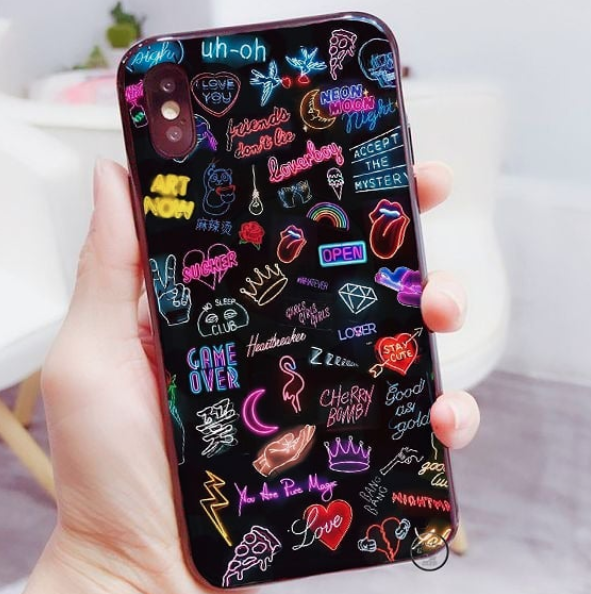For years marketers have focused on the habits and trends of Millennial consumers. But if your brand relies on a younger audience, it’s time to get to know Gen Z. This generation is known as ambitious, conscientious, and technologically gifted. Marketing tactics that appealed to Baby Boomers, Gen X, or even Millennials cannot be relied on to attract the attention of Generation Z — and may even alienate them. The way marketers connect with this generation will require a radically different approach. To capture the devotion of this generation, there are a few things you need to keep in mind to understand who they are, and what drives them to take action.
So, Who Is Gen Z?
While an exact definition depends on who you ask, Generation Z consists of individuals who grew up during the Great Recession in the late 2000s. Meaning, anyone born after 1995.
For them, childhood and adolescence were defined by economic insecurity, smartphones, social media, and political upheaval — both in 2008, with the election of Barack Obama, and again in 2016 with Donald Trump.
The young adults of Gen Z are not, as some have mistakenly described them, extreme Millennials. They do however share the previous generation’s affinity for technology. As the first generation to have never experienced a world without internet or cell phones, they are the real tech-native generation — and they are very discerning when it comes to digital marketing.
Why Does Marketing to Gen Z Matter?
This generation is larger and more influential than you may have realized. Fast Company suggests that this new generation will make up 40 percent of consumers by 2020. Gen Z is sizable and now boasts considerable buying power, especially as young adults score their first jobs in the workforce.
While they have a few things in common with Gen X and Millennials, these emerging adults require a radically different marketing approach. Let’s take a look at the most important considerations when marketing to the Gen Z crowd.
1. How to Market to Gen Z
Gen Z is all about authenticity. According to Forbes, honesty and openness are increasingly the ‘currency of brands.’ 79% of Gen Z stated they trust a company more if the brand images aren’t Photoshopped; while 84% trust a company more if they use actual customers in their ads. Young adults want to connect with people who understand them and can get on their level. They also demand convenience and mobile optimization. Forget the slick marketing strategies of the past like flashy Superbowl commercials, or outdated branded content.
2. Where to Market to Gen Z
The first step to building a stronger connection with Gen Z? Getting comfortable with their natural digital environment. By far, the most valuable avenues for marketing to this generation are in digital.
For Millennials, Facebook was the most popular social media site. However, it is by no means the most popular social media platform among Gen Z. You’ll instead find them flocking to platforms like Instagram, Snapchat, and YouTube.
According to Pew Research, 45% of teens say they are online “almost constantly.” That means teens are dedicating a significant portion of their day to their favorite channels. Gen Z continually consumes, creates, and engages with much more visual content over text exclusive status updates.
3. Draw on the Power of Influencers and Micro-Influencers
This may be the first generation in decades to show less affinity for Hollywood’s influence. Young adults regard typical celebrity shenanigans as inauthentic and unrelatable. Instead, brand influencers attract Gen Z’s attention. Influencers determine their personal brand early on through posting authentic User-Generated Content (UGC), and build personal connections with their young followers. Their audience relates more to people who are just like them, instead of celebrities. Smart marketers know they can’t be influencers themselves, so they identify brand influencers whose values align with their brand and work with them to reach young adults.
Remember, brand influencers post about products they love because there is a personal connection, not because they’re paid to do so. Gen Z is increasingly showing interest in micro-influencers, who focus on niche subjects and attract anywhere between 10,000 and 100,000 highly-invested followers.
Social Report outlined 7 of the top micro-influencers that brands sponsor. One micro-influencer @physicalkitchness provides solutions to more than 72 thousand followers about healthy meals and features brands that cater to a healthy lifestyle. Since influencers like @physicalkitchness have already earned the trust of their audience, it’s easy to see how brands can also feel that trust when an influencer shares a brand’s content. This form of UGC attracts a new audience, where followers are more likely to purchase a brand’s products and become continued subscribers to a brand’s content.
4. Optimize for Mobile
If you haven’t already optimized your marketing efforts for mobile devices, you have fallen far behind. Smartphones and tablets are essential for Gen Z, who abandons brands that fail to offer a seamless mobile experience. As with Millennials, the young adults of this generation are constantly attached to their phones. According to Google, Gen Z craves connection with others — and that doesn’t just mean in person. These young adults prefer to use texting as their first choice of communication followed by messaging apps. They appreciate websites optimized for mobile devices, easy-to-use apps, and text-based offers. Geotargeting works well for Gen Z; they’re happy to score a deal if it’s within easy reach.
5. Prioritize Convenience
Busy to a fault, Gen Z is willing to pay a premium for any service that saves them time. Think Netflix, Amazon, or DoorDash. This generation doesn’t just appreciate free two-day shipping; they expect it. Brands can’t hesitate to emphasize convenience — it’s a must! Gen Z doesn’t just want to order online and pick it up. They want things delivered right to them and that especially includes marketing messages. The top brands among this generation will be those who can consistently deliver on time as promised.
With an authentic message and a healthy dose of convenience, it’s possible to inspire loyalty from the young adults of Gen Z. At TINT, we help brands leverage User Generated Content to tell their best stories in an innovative and memorable way. Don’t overlook this important generation as you refine your digital marketing strategy. Request a demo to get started!








